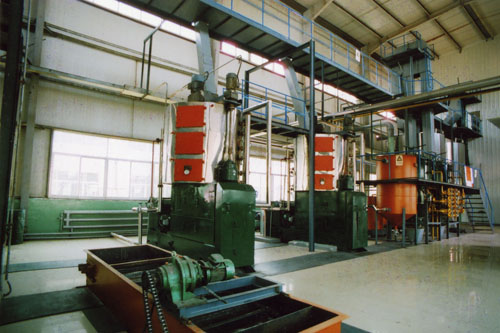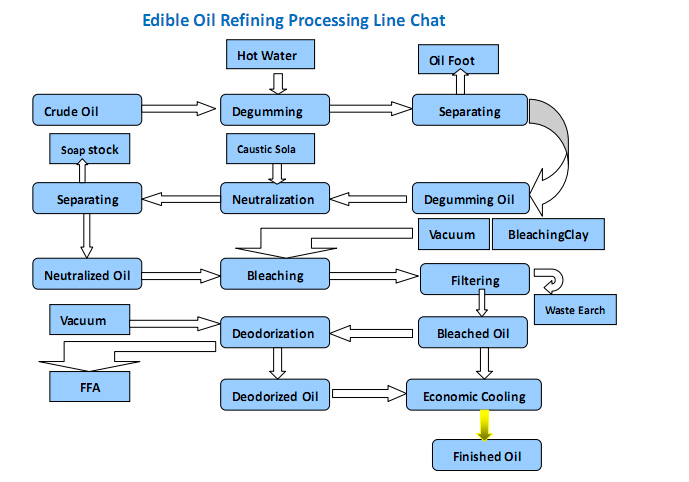Peanut oil, known for its rich flavor and high nutritional value, is a popular choice in kitchens worldwide. The production of this oil relies heavily on advanced machinery designed to efficiently extract oil from peanuts. This article provides a detailed overview of peanut oil extraction machinery, highlighting its key features, advantages, and the various applications across different scales of production.
Peanut oil extraction machinery refers to the specialized equipment used to extract oil from peanuts, also known as groundnuts. The machinery is designed to handle the entire process, from cleaning and shelling the peanuts to pressing and filtering the oil. Depending on the scale of production and the desired quality of the oil, different types of machines may be used, including:
Screw Press Machines: These machines use a mechanical screw to press the peanuts, forcing the oil out. The screw press method is popular due to its efficiency and ability to maintain the natural flavor and nutritional content of the oil. It’s particularly favored for producing cold-pressed peanut oil.
Hydraulic Press Machines: This type of machine applies pressure through a hydraulic system, pressing the oil out of the peanuts. Hydraulic presses are known for their high oil yield and are often used in smaller-scale or boutique operations where quality is prioritized over quantity.
Solvent Extraction Machines: Solvent extraction involves using a chemical solvent, such as hexane, to dissolve the oil from the peanuts. This method is highly efficient and is typically used in large-scale industrial production to maximize oil yield.
Integrated Oil Press Machines: These machines combine several processes, such as crushing, pressing, and filtering, into one unit. They are suitable for small to medium-sized enterprises and are designed to simplify the oil extraction process.

Peanut oil extraction machinery offers several advantages, making it an essential tool in the production of high-quality peanut oil. Some of the key benefits include:
1.High Efficiency: Modern peanut oil extraction machines are designed to maximize the extraction of oil from peanuts. This is achieved through advanced engineering and precision design, ensuring minimal wastage of raw materials and higher oil yield.
2.Quality Preservation: The machinery is designed to preserve the natural qualities of peanut oil, including its flavor, aroma, and nutritional content. Cold press machines, in particular, ensure that the oil retains its health benefits, such as high levels of monounsaturated fats and vitamin E.
3.Automation and Ease of Use: Many peanut oil extraction machines are equipped with automated systems that reduce the need for manual intervention. Features such as temperature control, automatic feeding, and integrated filtering systems make the process more user-friendly and reduce the likelihood of human error.
4.Scalability: Whether for small-scale production or large industrial operations, there are machines available to suit every need. Small screw presses are ideal for local producers or boutique oil brands, while large solvent extraction systems can handle the demands of mass production.
5.Cost-Effectiveness: The initial investment in peanut oil extraction machinery can be offset by the efficiency and high yield of the machines, leading to lower production costs over time. Additionally, the durability and low maintenance requirements of these machines further enhance their cost-effectiveness.
6.Versatility: Besides peanuts, many oil extraction machines can also be used to process other oil-bearing seeds and nuts, such as sunflower seeds, sesame seeds, and almonds. This versatility makes the equipment a valuable asset for producers looking to diversify their product offerings.

Peanut oil extraction machinery is used across a wide range of applications, from small-scale home production to large industrial operations. The choice of machinery depends largely on the scale of production, the quality of oil required, and the target market. Below are some of the primary areas of application:
Small-Scale Production: For small businesses looking to produce peanut oil for local sale, small screw press machines or hydraulic oil presses are ideal. These machines are compact, easy to use, and do not require a large investment. They are perfect for producing small batches of oil with minimal processing.
Medium-Sized Enterprises: Businesses that produce peanut oil for regional markets or specialty stores typically use mid-sized machines, such as integrated oil presses or small solvent extraction units. These machines offer a balance between production capacity and product quality, allowing businesses to meet market demand while maintaining a focus on quality.
Large Industrial Production: Large-scale producers of peanut oil often invest in high-capacity machinery, including large screw presses, extensive solvent extraction systems, and fully automated processing lines. These machines are designed for continuous operation and can process vast quantities of peanuts, making them suitable for companies supplying national or international markets.
Specialty and Boutique Production: For producers who focus on high-quality, peanut oil, cold press machines and small hydraulic presses are often the equipment of choice. These machines ensure that the oil retains its full flavor and nutritional profile, catering to the growing demand for premium, health-conscious products.
Peanut oil extraction machinery plays a crucial role in the production of one of the most beloved cooking oils in the world. Its ability to efficiently extract high-quality oil from peanuts makes it an invaluable tool for producers at all levels, from small-scale farmers to large industrial manufacturers. The machinery's advantages, including high efficiency, quality preservation, and scalability, ensure that producers can meet the demands of their respective markets.
As the demand for healthy and natural oils continues to grow, peanut oil extraction machinery will remain a vital component in the production process, helping to deliver the rich, flavorful oil that consumers love. By choosing the right machinery and optimizing the production process, producers can ensure they deliver top-quality peanut oil while maximizing their return on investment.
















.png)


